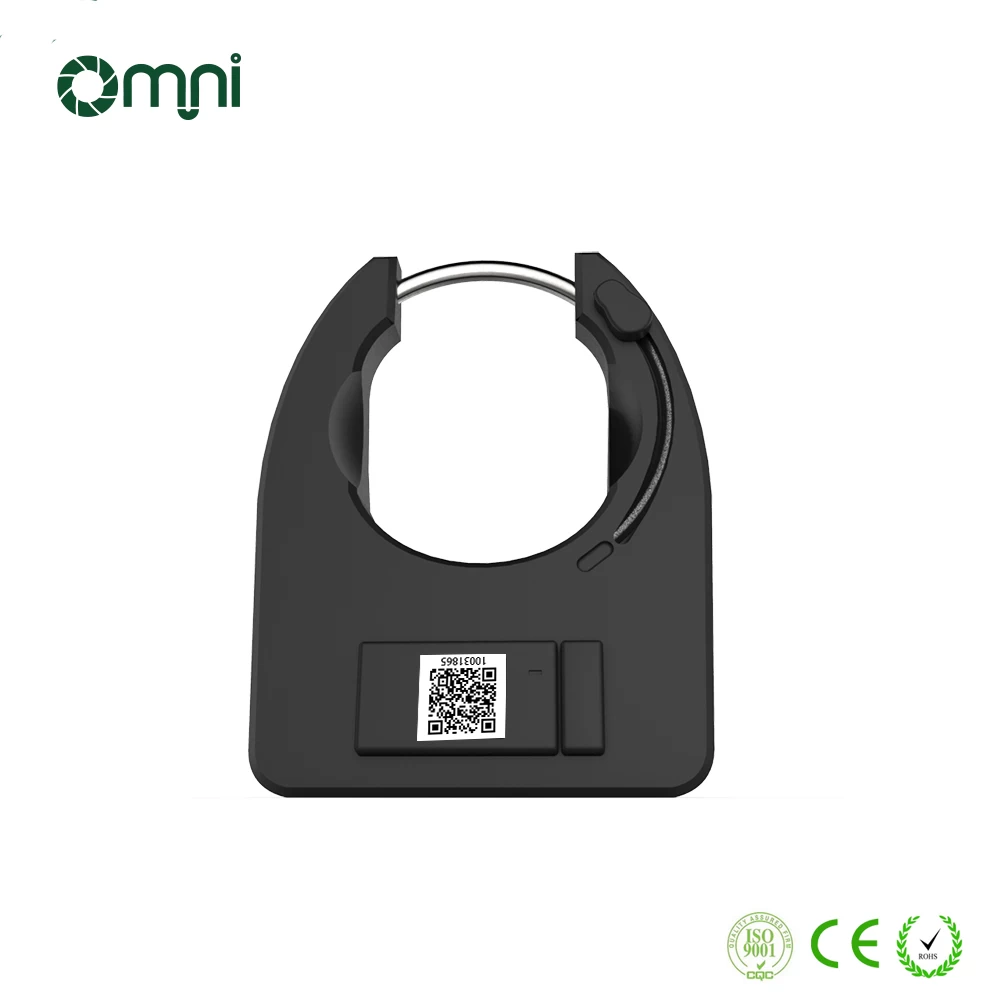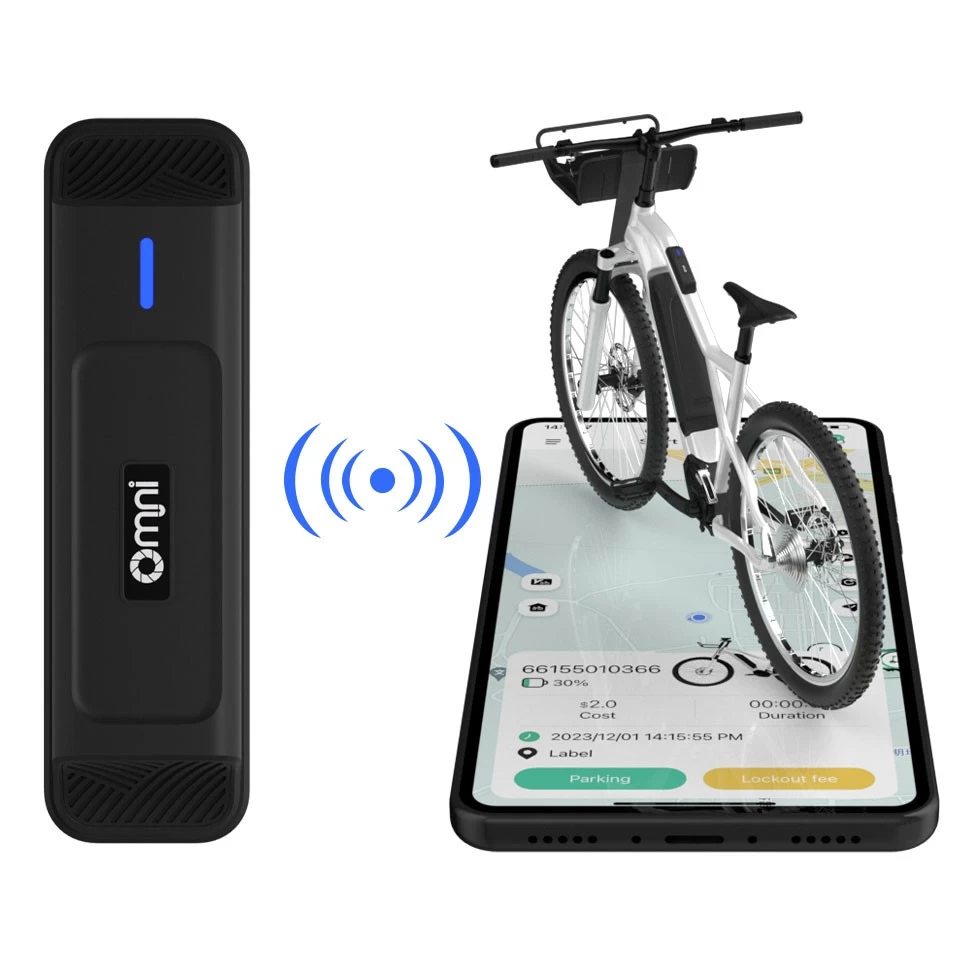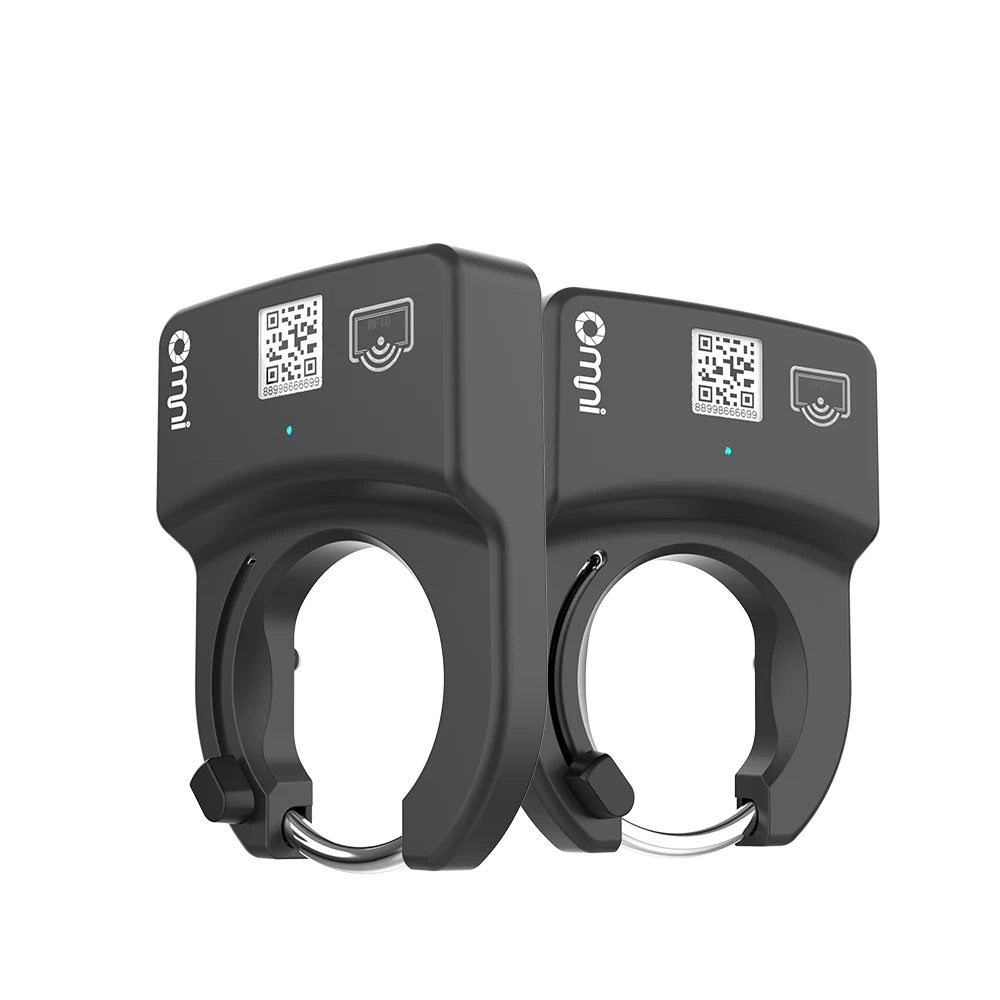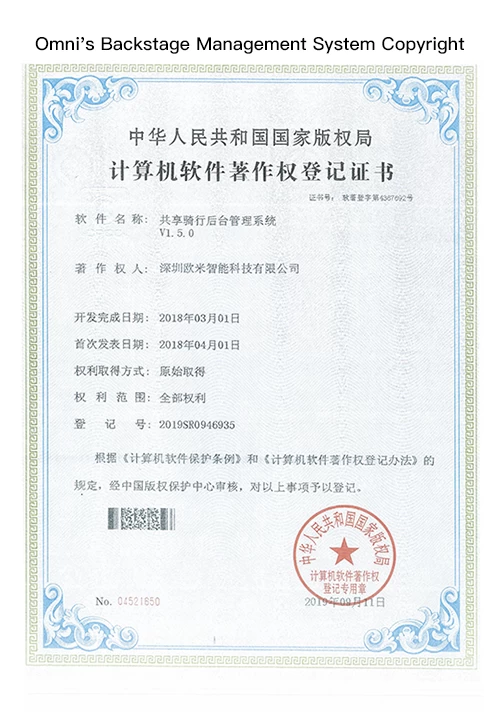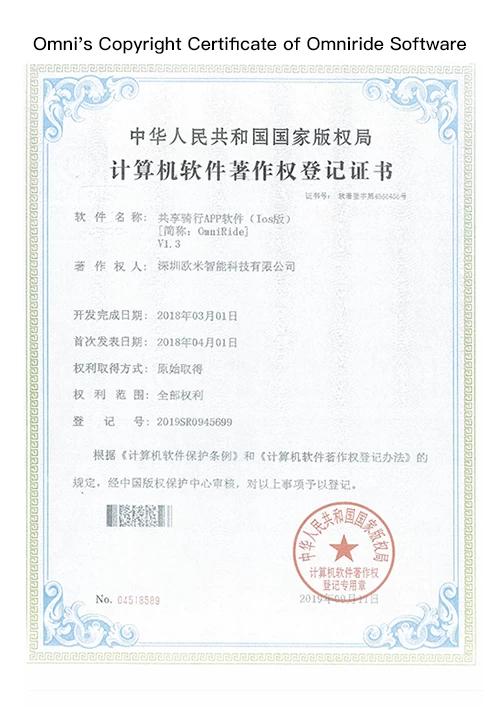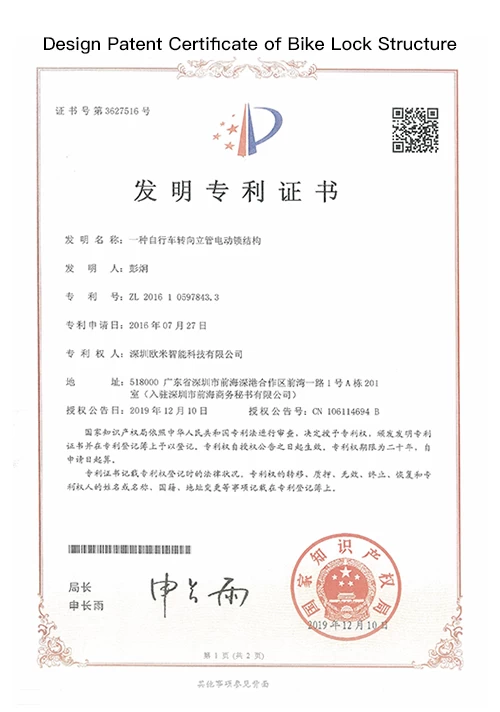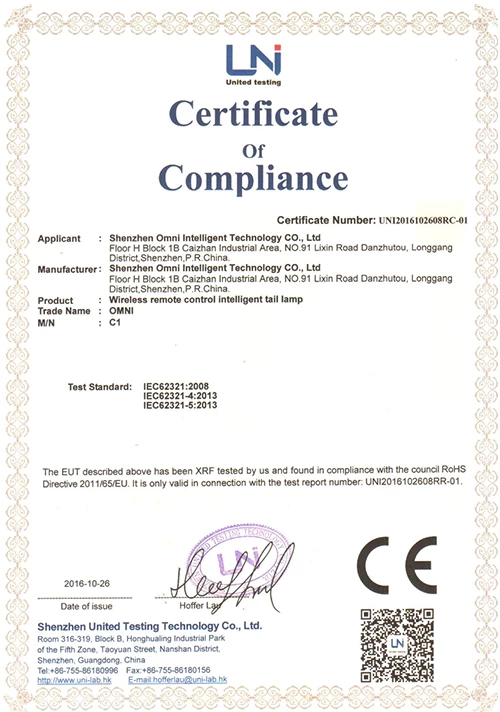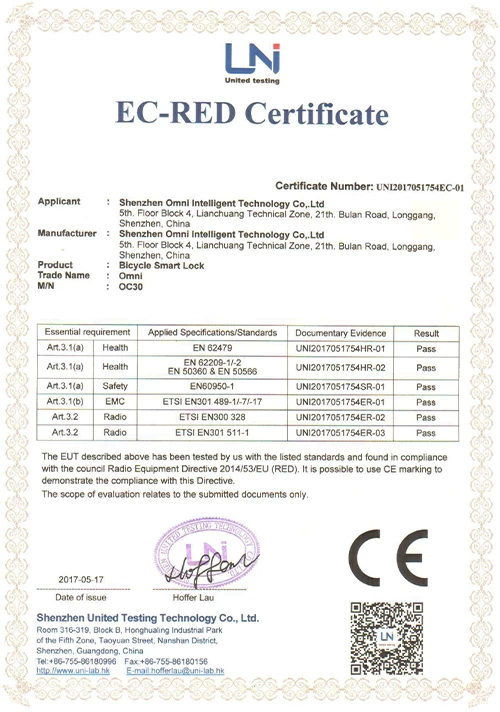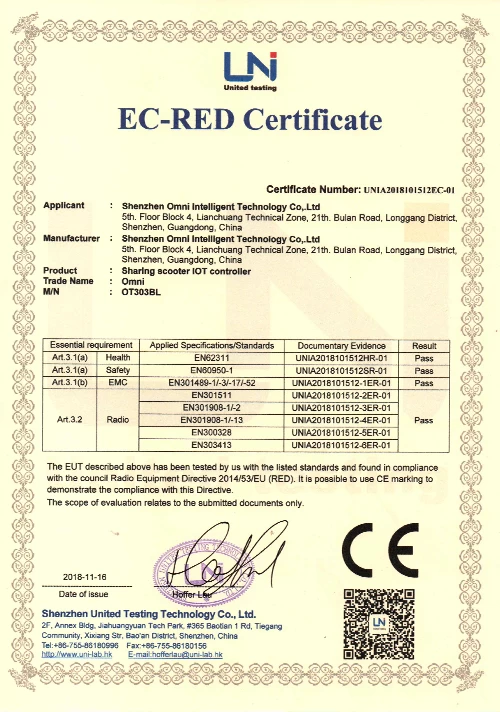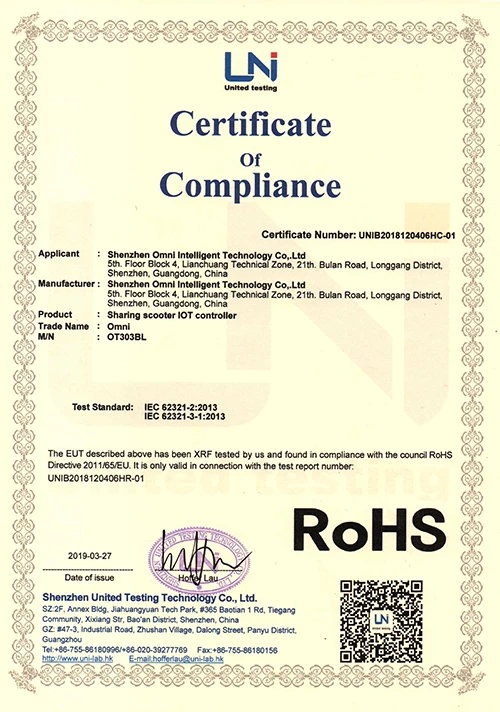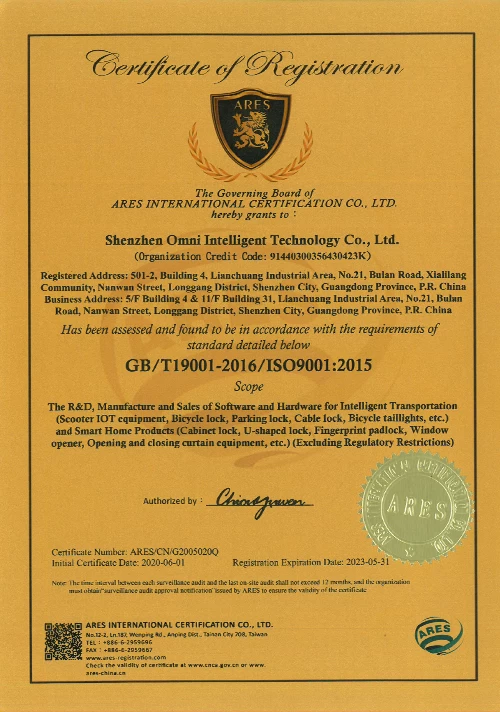How Covid-19 has impacted the micromobility stock market
2020-05-19 18:16:59
COVID-19 is shaking the global economy, and this encompasses the micromobility market. The use of shared kick scooters, bikes, mopeds, and also cars is heavily impacted by the ongoing crisis. Usage dropped significantly in most fleets and cities and continues to have economic implications for the industry.
This article is not a complete picture of the market but gives examples of a complex and currently very volatile matter. It analyzes the performance of micromobility-related stocks and what it can tell us about the past months, current state and possible future development.
The different micromobility sectors are not equally embedded into global stock markets
First, we need to determine which markets to consider when we are talking about micromobility stocks. Which sectors are we looking at? The listed companies are not equally distributed among operators, manufacturers and service suppliers. Additionally, the question is raised, which shared vehicle types are more traded at stock markets?
When looking at vehicle types, kick scooters are the least involved in global stock markets. The industry is heavily financed by global venture capital direct investments. One of the exceptions is Uber, which runs the kickscooter/bike operator Jump and is publicly traded. Other global sector heavyweights such as Bird, Lime, TIER or voi are not directly involved in stock markets. Scooter manufacturers such as OKAI or Segway-Ninebot are also not traded at stock markets.
Bike sharing faces a more diverse picture. The market is rather heterogeneous. It is more mature and looks upon a longer development history than the one for kickscooters. Some operators such as global free-floating giant Mobike or above-mentioned Jump are backed by large-scale parent companies, which are publicly traded.
In the moped sharing industry, many moped manufacturers are traded, such as NIU and Askoll (both top 3 moped sharing vehicle suppliers as of 2019), or global player Yamaha as well as emerging Vmoto. Operators are rarely traded, one exception is the Spanish conglomerate group Acciona, running Acciona Mobility in Southern Europe (Spain, Portugal, Italy).
Car sharing – though not a micromobility option – is quite involved in global stock markets. Free floating companies especially, are often held and run by large global OEMs.
For all mentioned industries, service suppliers for operations software, customer apps or hardware (IOT) are rarely publicly traded.
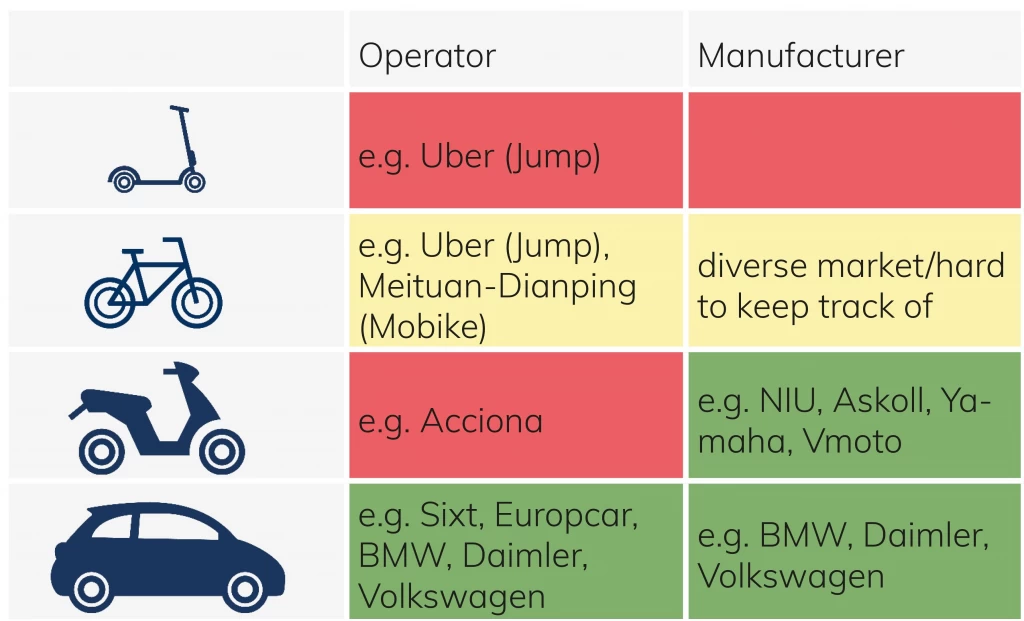
This article is not a complete picture of the market but gives examples of a complex and currently very volatile matter. It analyzes the performance of micromobility-related stocks and what it can tell us about the past months, current state and possible future development.
The different micromobility sectors are not equally embedded into global stock markets
First, we need to determine which markets to consider when we are talking about micromobility stocks. Which sectors are we looking at? The listed companies are not equally distributed among operators, manufacturers and service suppliers. Additionally, the question is raised, which shared vehicle types are more traded at stock markets?
When looking at vehicle types, kick scooters are the least involved in global stock markets. The industry is heavily financed by global venture capital direct investments. One of the exceptions is Uber, which runs the kickscooter/bike operator Jump and is publicly traded. Other global sector heavyweights such as Bird, Lime, TIER or voi are not directly involved in stock markets. Scooter manufacturers such as OKAI or Segway-Ninebot are also not traded at stock markets.
Bike sharing faces a more diverse picture. The market is rather heterogeneous. It is more mature and looks upon a longer development history than the one for kickscooters. Some operators such as global free-floating giant Mobike or above-mentioned Jump are backed by large-scale parent companies, which are publicly traded.
In the moped sharing industry, many moped manufacturers are traded, such as NIU and Askoll (both top 3 moped sharing vehicle suppliers as of 2019), or global player Yamaha as well as emerging Vmoto. Operators are rarely traded, one exception is the Spanish conglomerate group Acciona, running Acciona Mobility in Southern Europe (Spain, Portugal, Italy).
Car sharing – though not a micromobility option – is quite involved in global stock markets. Free floating companies especially, are often held and run by large global OEMs.
For all mentioned industries, service suppliers for operations software, customer apps or hardware (IOT) are rarely publicly traded.






